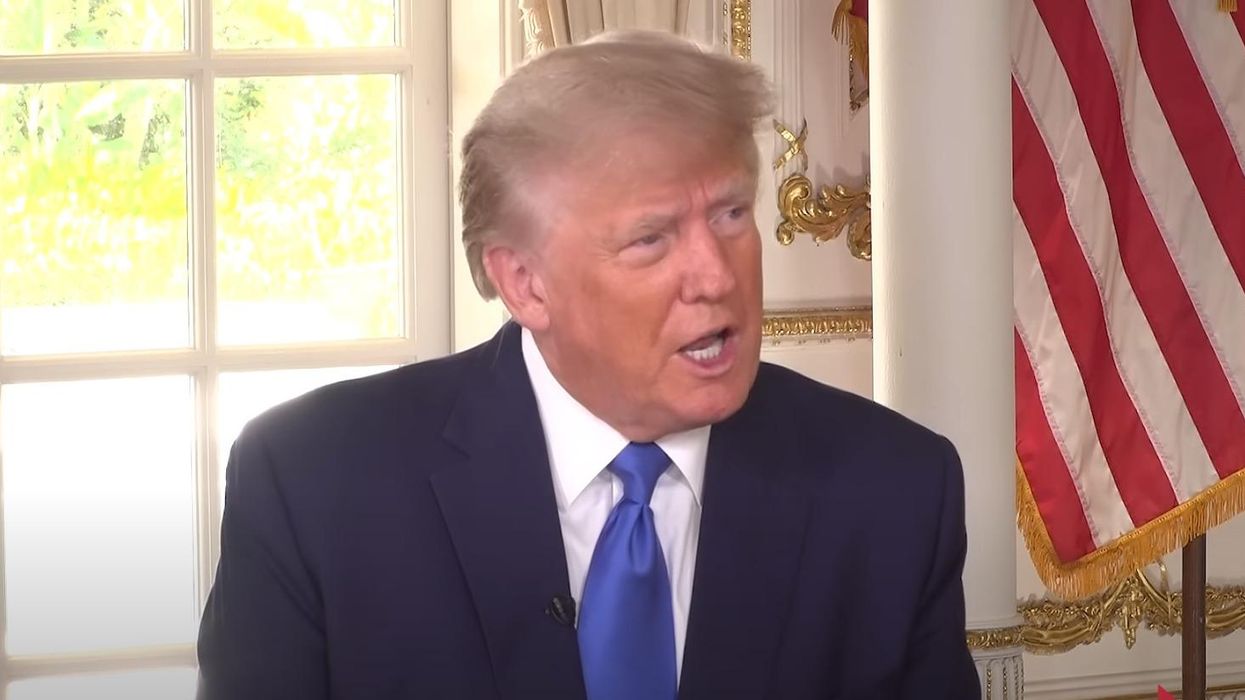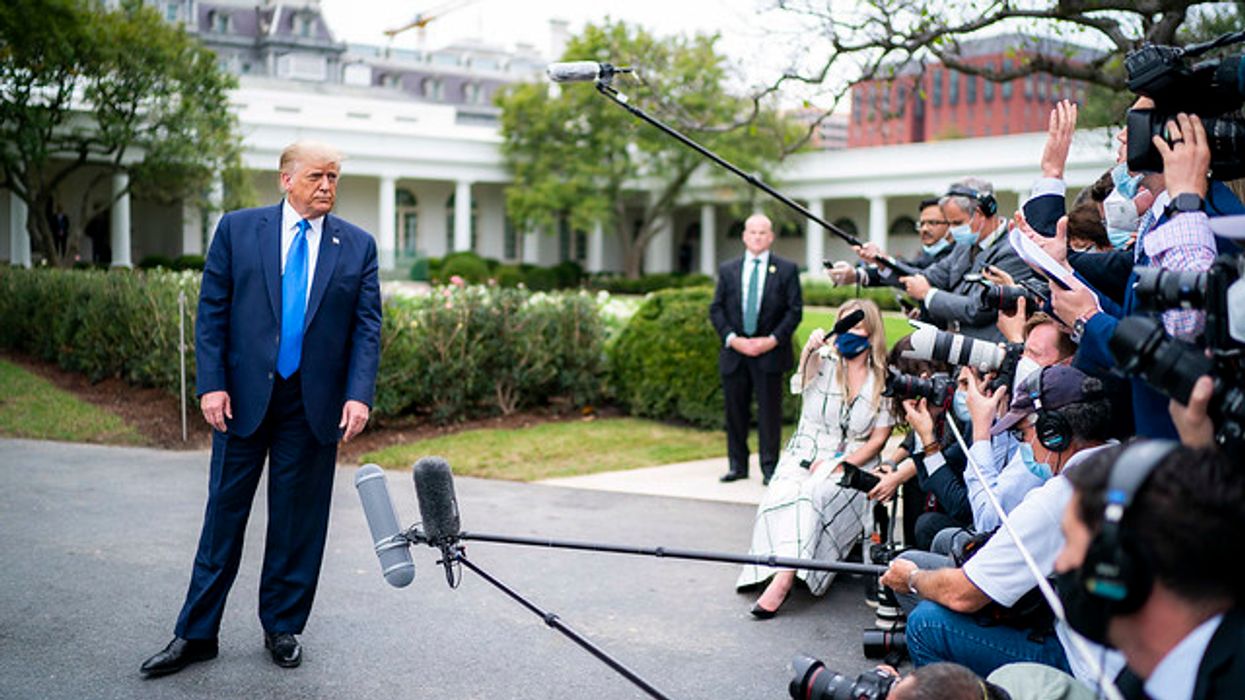Presidential Immunity Plus Pardon Power Equals Absolute Despotism
Donald Trump’s pardons of January 6 insurrectionists on his first day as president in January of this year were an admission that he instigated the assault on the Capitol, and that he approved of the way the assault was carried out, including violent attacks on police officers resulting in at least one death and leaving others with career-ending injuries.
Looked at in a different way, Trump thus pardoned himself, even though such an action was not necessary due to the incredible law-busting fact that the Supreme Court, in United States v. Trump had given him blanket immunity for virtually anything he does or did that could be defined as an “official act.”
Trump has been using the toxic combination of immunity and the pardon power in a crescendo of lawlessness that was unforeseen by the founding fathers at the time they wrote the Constitution. It’s the biggest fuck you to our democracy since its founding. In his disassembly of whole departments of government that were established in laws written by the Congress, Trump is saying to the other two branches of government, “If you don’t like it, come and get me.”
The Republican Congress, at this point a wholly owned subsidiary of Donald Trump and the Trump Organization, has sat on its hands, and individual Republican members of Congress, including the speaker of the House, have endorsed Trump’s rape of the government. Congressional Republicans, as well as conservative members of the judiciary, adhere to a royalist theory of presidential power called the unitary executive, which holds that Trump, as president, has sole authority over the executive branch, including the right to fire all appointees and executive branch officers, with or without cause.
Since taking office for a second time, Trump has tested the limits of his executive power repeatedly, eliminating entire divisions of the government such as the United States Agency for International Development (USAID) and firing directors of Congressionally created agencies that had previously been considered independent of the Executive.
Last week, the Supreme Court adopted Trump’s position on his powers by issuing an order allowing him to fire board members of the National Labor Relations Board and the Merits Systems Protection Board. The top court paused lower court orders that had allowed the two board officials to continue to serve while a lawsuit they filed makes its way through the courts. The lower courts observed that under the congressional statute establishing the boards, its members could be fired only for “good cause,” and the administration had not provided such cause.
Trump’s unilateral moves in firing government employees and disestablishing government departments have been stymied by the courts multiple times. A report by Adam Bonica on his Substack, “On Data and Democracy,” found that during the month of May, “federal district courts ruled against the Trump administration in 26 of 27 cases—a stunning 96% loss rate.” Trump lost 76 percent of the cases against him in April, and 74 percent in March.
Yesterday, Trump added to his court losses when he suffered a stinging rebuke by a federal judge who found that his moves to punish the WilmerHale law firm were unconstitutional. Other judges have struck down Trump’s similar moves against Jenner & Block and Perkins Coie. Trump had issued orders against the law firms blocking their access to federal buildings and representing clients in lawsuits involving contracts with the federal government. Trump asserted his “right” to punish these law firms and several others because of his absolute control over the federal government.
What Donald Trump has done with his 140-plus executive orders and his attempts to punish law firms and other independent businesses such as CBS and entertainment companies has been to assert authoritarian control not only over the government, but over companies that do business with the government or are subject to government regulation. This is an unprecedented assertion of presidential power. So far, the only check on Trump has been lawsuits filed one after the other by individuals, businesses, and universities affected by Trump’s orders.
Courts have rejected the great majority of Trump’s attempts at absolute control, but as the lawsuits make their way through the courts, they all have one ultimate destination: the Supreme Court. Trump appointed three arch-conservative justices to a court already dominated by Republican-appointed justices. The Supreme Court has gone back and forth with its recent orders on its “emergency docket,” ordering that migrants have rights under the due process clause of the 14th Amendment and ordering the return of at least one migrant who was wrongfully deported by Trump’s Department of Homeland Security.
But the court has so far failed to enforce its own order to return the mistakenly deported migrant KIlmar Abrego Garcia from El Salvador. So far, no court has found the Trump administration in contempt of court, but legal experts predict that such an order is inevitable in multiple cases because of the Trump administration’s refusal or inability to provide legal justification for many of the moves they have made.
If and when such a contempt order is issued against one or more of Trump’s departments, we have been told that the United States will be in the first real constitutional crisis of its history. In the past, as in the Pentagon Papers case, and in the Watergate case in which Nixon was ordered by a federal judge to produce the White House tapes, the president then in power capitulated to the court orders and a crisis was avoided.
But this time, the president in office enjoys something Nixon and other presidents never had: absolute immunity from prosecution from his acts as president. Trump also enjoys the power given him under the Constitution to pardon anyone for committing any crime. Last Friday, Trump issued a full and unconditional pardon to a man who had been convicted of several tax crimes that charged him with using his unpaid taxes to finance a lavish lifestyle and buy luxury goods, including a $2 million yacht.
The pardon was issued after the man’s mother attended a $1 million-a-head Mar a Lago fund raiser at which she spoke to Trump personally. She had been a major Republican fund raiser in the past and had contributed to Trump’s election effort in 2024, co-hosting at least three fund-raisers for Trump. In a very real sense, the mother of this tax-cheat bought a pardon for her son by paying Donald Trump directly.
Yesterday, Trump pardoned a Virginia sheriff who had been convicted on multiple counts of bribery for accepting “cash-stuffed envelopes” from wealthy people he provided with badges. appointing them as bogus “auxiliary sheriffs,” that allowed them to break the law. Along with other sheriffs, he had formed a “Protect America Now PAC” to support Trump. The sheriff was sentenced to 10 years in federal prison for his crimes. The pardon was overseen by Ed Martin, newly appointed as Trump’s “pardon attorney” in the Department of Justice in addition to being put in charge of the DOJ office of “weaponization,” intended to undo actions by the Biden administration the DOJ sees as unfairly punishing MAGA supporters of Trump.
Pardoning random MAGA supporters and people Trump wants to reward for giving him money is the least of it. The real problem is Trump’s ability to pardon anyone he orders to commit a crime in his name. For example, if a judge ends up finding an assistant U.S. Attorney in contempt of court and orders him or her fined, Trump can issue a pardon and negate the contempt finding. This will allow the Trump DOJ to go into court and lie to judges with impunity, knowing that they will suffer no consequences as long as the lies they tell are in support of Trump’s illegal actions being challenged in court.
The same would go for anyone working for Trump in his administration. If Trump orders one of his cabinet secretaries to defy a court order, or to execute an illegal act such as administratively fining a government employee for some imagined crime such as signing a document refusing to carry out an illegal order, he can simply order Pam Bondi and his DOJ not to prosecute whoever is involved. At the end of his administration, Trump can issue blanket pardons that will prevent a new administration from prosecuting crimes carried out under Trump’s orders today.
Trump’s pardons are being called “get out of jail free” cards, but they’re worse than that. By preemptively ordering that certain people not be prosecuted, they will never be charged, much less come to trial and be convicted. As he has shown with his two most recent pardons, Trump can nullify prosecutions which predated his return to office, turning the Department of Justice into an office of revenge and retribution unseen before in American history and certainly not contemplated by the signers of the Declaration of Independence, who asserted in the name of the 13 colonies and their citizens that the corruption of royal rule was being thrown off in contemplation of something better.
Speaking of the rights of “the people,” the signers declared that “When a long train of abuses and usurpations, pursuing invariably the same Object evinces a design to reduce them under absolute Despotism, it is their right, it is their duty, to throw off such Government, and to provide new Guards for their future security.”
We have entered into a new age of “absolute Despotism.” Whether we will throw off those who would impose upon us such “abuses and usurpations” as we have endured for the last four months remains to be seen.
Lucian K. Truscott IV, a graduate of West Point, has had a 50-year career as a journalist, novelist, and screenwriter. He has covered Watergate, the Stonewall riots, and wars in Lebanon, Iraq, and Afghanistan. He is also the author of five bestselling novels. He writes every day at luciantruscott.substack.com and you can follow him on Bluesky @lktiv.bsky.social and on Facebook at Lucian K. Truscott IV. Please consider subscribing to his Substack.
Reprinted with permission from Lucian Truscott Newsletter.












